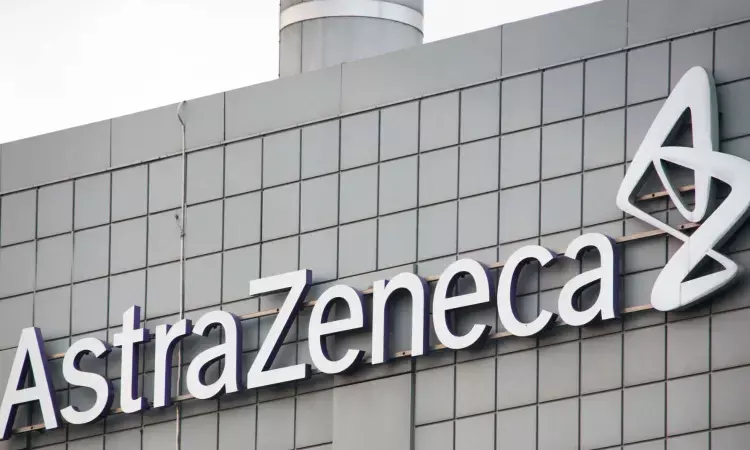- Home
- Medical news & Guidelines
- Anesthesiology
- Cardiology and CTVS
- Critical Care
- Dentistry
- Dermatology
- Diabetes and Endocrinology
- ENT
- Gastroenterology
- Medicine
- Nephrology
- Neurology
- Obstretics-Gynaecology
- Oncology
- Ophthalmology
- Orthopaedics
- Pediatrics-Neonatology
- Psychiatry
- Pulmonology
- Radiology
- Surgery
- Urology
- Laboratory Medicine
- Diet
- Nursing
- Paramedical
- Physiotherapy
- Health news
- Fact Check
- Bone Health Fact Check
- Brain Health Fact Check
- Cancer Related Fact Check
- Child Care Fact Check
- Dental and oral health fact check
- Diabetes and metabolic health fact check
- Diet and Nutrition Fact Check
- Eye and ENT Care Fact Check
- Fitness fact check
- Gut health fact check
- Heart health fact check
- Kidney health fact check
- Medical education fact check
- Men's health fact check
- Respiratory fact check
- Skin and hair care fact check
- Vaccine and Immunization fact check
- Women's health fact check
- AYUSH
- State News
- Andaman and Nicobar Islands
- Andhra Pradesh
- Arunachal Pradesh
- Assam
- Bihar
- Chandigarh
- Chattisgarh
- Dadra and Nagar Haveli
- Daman and Diu
- Delhi
- Goa
- Gujarat
- Haryana
- Himachal Pradesh
- Jammu & Kashmir
- Jharkhand
- Karnataka
- Kerala
- Ladakh
- Lakshadweep
- Madhya Pradesh
- Maharashtra
- Manipur
- Meghalaya
- Mizoram
- Nagaland
- Odisha
- Puducherry
- Punjab
- Rajasthan
- Sikkim
- Tamil Nadu
- Telangana
- Tripura
- Uttar Pradesh
- Uttrakhand
- West Bengal
- Medical Education
- Industry
Zibotentan plus dapagliflozin demonstrated significant albuminuria reduction in patients with chronic kidney disease, proteinuria: AstraZeneca

Cambridge: AstraZeneca has announced that the combination of zibotentan with dapagliflozin has shown statistically significant and clinically meaningful reductions in urinary albumin-to-creatinine ratio (UACR), used to assess albuminuria, at 12 weeks compared with dapagliflozin alone.
After 12 weeks of treatment, the Phase IIb ZENITH-CKD trial showed that the UACR difference of zibotentan/dapagliflozin versus dapagliflozin alone (n=177) was –33.7% (90% CI –42.5 to –23.5; p<0.001) for high dose (1.5 mg zibotentan / 10 mg dapagliflozin; n=179) and –27.0% (90% CI –38.4 to –13.6; p=0.002) for low dose (0.25 mg / 10 mg; n=91). The percentage mean change from baseline in UACR was –52.5% (90% CI –59.0 to –44.9) for high-dose and –47.7% (90% CI –55.7 to –38.2) for low-dose combination.
These results were presented at the American Society of Nephrology (ASN) Kidney Week 2023 and simultaneously published in The Lancet.
Previous studies showed endothelin A (ETA) receptor antagonists are associated with high rates of fluid retention. The results from ZENITH-CKD showed low-dose zibotentan/dapagliflozin, but not high-dose, had comparable fluid retention events to dapagliflozin alone, with 18.4% (33/179), 8.8% (8/91) and 7.9% (14/177) of patients experiencing events in high-dose combination, low-dose combination and dapagliflozin groups, respectively.
Hiddo Heerspink, Department of Clinical Pharmacy and Pharmacology, University of Groningen, University Medical Center Groningen, Groningen, the Netherlands, said, “Elevated levels of albuminuria are associated with an increased risk of kidney function loss over time and by reducing the level, we can lower the risk of progression to kidney failure. The encouraging data from the ZENITH-CKD trial show therapeutic potential to help patients who remain at risk due to residual albuminuria by harnessing the beneficial aspects of an ETA receptor antagonist with an SGLT2 inhibitor.”
Sharon Barr, Executive Vice President, BioPharmaceuticals R&D, AstraZeneca, said, “Despite current treatment options, residual proteinuria persists in a sizeable portion of patients and is associated with a high risk of kidney failure. The evidence published supports advancement of zibotentan/dapagliflozin into a Phase III clinical trial to further assess its potential as a first-in-class treatment for residual proteinuria in CKD.”
Nearly 850 million people worldwide—or more than 1 in 10 people—are affected by chronic kidney disease (CKD). High proteinuria affects approximately 10% of patients with CKD and is independently associated with higher cardiovascular mortality risk and progression to kidney failure, remaining a serious unmet need in this patient population.
This novel investigational therapy leverages zibotentan, a highly selective ETA receptor antagonist that works by improving kidney blood flow and reducing albuminuria and vascular stiffness, and dapagliflozin, a selective sodium-glucose cotransporter 2 (SGLT2) inhibitor proven to help delay the worsening of CKD in patients at risk of progression. Dapagliflozin works by driving fluid out of the extravascular space, potentially leading to a further reduction in the risk of fluid retention.
These results support progress to Phase III, which aims to start in Q4 2023.
Reference: Prof Hiddo J L Heerspink, Arihiro Kiyosue, Prof David C Wheeler, Min Lin, Zibotentan in combination with dapagliflozin compared with dapagliflozin in patients with chronic kidney disease (ZENITH-CKD): a multicentre, randomised, active-controlled, phase 2b, clinical trial, the lancet, DOI:https://doi.org/10.1016/S0140-6736(23)02230-4
Ruchika Sharma joined Medical Dialogue as an Correspondent for the Business Section in 2019. She covers all the updates in the Pharmaceutical field, Policy, Insurance, Business Healthcare, Medical News, Health News, Pharma News, Healthcare and Investment. She has completed her B.Com from Delhi University and then pursued postgraduation in M.Com. She can be contacted at editorial@medicaldialogues.in Contact no. 011-43720751


